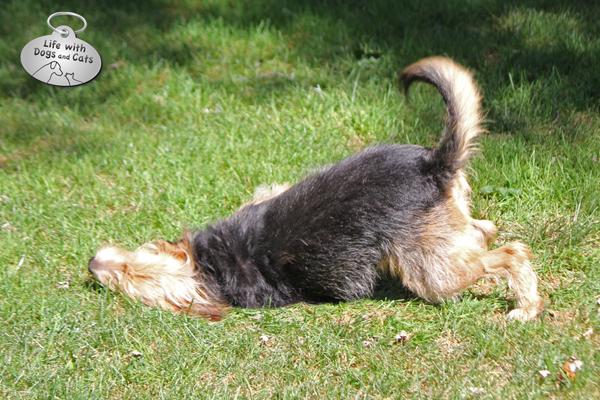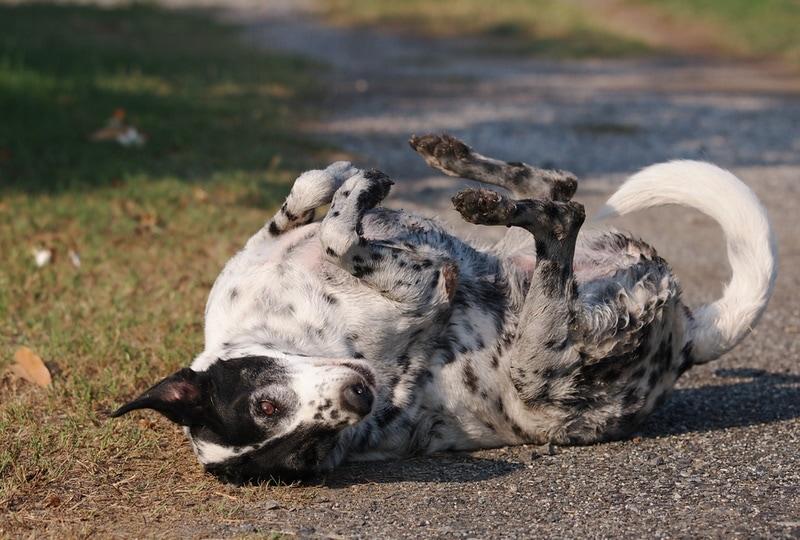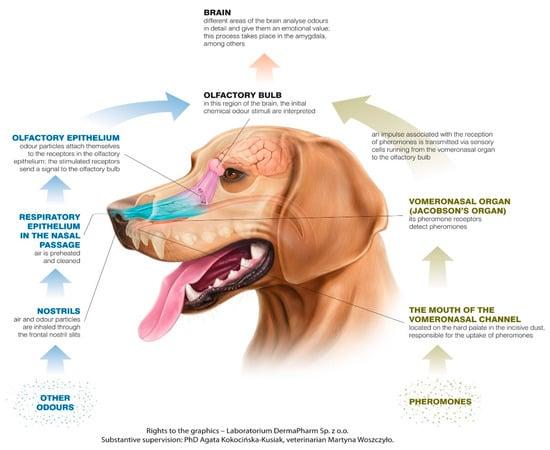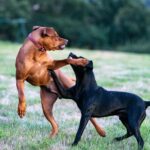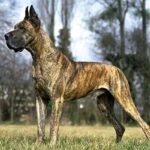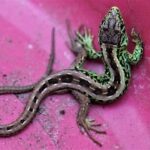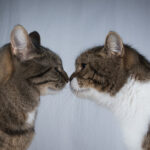If you’re a dog owner, you’ve likely witnessed that perplexing moment when your furry friend finds something smelly and decides it’s the perfect opportunity for a good roll. While this might leave you scratching your head and wondering why in the world your pet would want to cover themselves in something so unpleasant, there’s actually an intriguing mix of instincts and behaviors behind this quirky habit.
In this article, we’ll delve into the reasons dogs exhibit this curious behavior, from their ancestral roots to possible sensory pleasures and even communication aspects. So, grab a cup of coffee, and let’s explore the fascinating world of canine behavior together—because understanding your dog’s quirks is just another step toward deepening your bond.
Table of Contents
- Understanding the Natural Instincts Behind Poop Rolling
- The Role of Scent in Canine Behavior and Communication
- Health Considerations: When Poop Rolling Becomes a Concern
- Practical Tips for Managing Your Dogs Poop Rolling Habit
- Q&A
- Closing Remarks
Understanding the Natural Instincts Behind Poop Rolling
Dogs are naturally curious creatures, and their instincts can often lead them to behaviors that baffle their human companions. One particularly perplexing behavior is their tendency to roll in feces, which some might find unpleasant but is rooted deeply in their ancestral behaviors. In the wild, dogs would roll in the scents of other animals, including feces, to camouflage themselves, making it easier to sneak up on prey. This instinctual behavior is a remnant of survival tactics, ensuring they blend into their environment and remain unnoticed by both predators and prey alike.
Beyond survival, this behavior can also be attributed to social signaling. Dogs possess a highly developed sense of smell, and by rolling in poop, they are effectively marking their territory or communicating with other dogs. This act can convey a myriad of messages, such as indicating their presence or asserting dominance. The following points encapsulate the underlying reasons for this quirky habit:
- Camouflage: Helps dogs blend into their environment.
- Communication: Sends signals to other dogs about their presence.
- Curiosity: The allure of new and interesting smells.
- Territory Marking: Establishes their scent in a particular area.
The Role of Scent in Canine Behavior and Communication
Dogs have an extraordinary sense of smell, which plays a crucial role in their behavior and communication. Their olfactory receptors are far more sensitive than those of humans, allowing them to detect scents at incredibly low concentrations. This heightened sense of smell enables dogs to gather information about their environment, other animals, and even the humans around them. When a dog rolls in poop, it might seem perplexing, but they could be attempting to mask their own scent or to communicate with other dogs. In the wild, such behaviors may serve to convey messages regarding their presence or to acquire information about the health and diet of other animals. This instinctual behavior taps into their ancestral practices, where scent was integral for survival.
Moreover, rolling in poop or other strong-smelling substances can also be a form of self-expression for dogs. They might engage in this behavior for several reasons, including:
- Exploration: Dogs explore the world primarily through their noses, and rolling in an intriguing scent can be a way to experience their surroundings.
- Social Interaction: By covering themselves in a particular scent, dogs may be trying to connect with other dogs or signal their presence.
- Comfort: Certain smells can be comforting to dogs, reminiscent of their pack or familiar environments.
This quirky behavior, while sometimes baffling to dog owners, is deeply rooted in the canine’s instinctual nature, reflecting their unique way of engaging with the world.
Health Considerations: When Poop Rolling Becomes a Concern
While rolling in poop might seem like a humorous quirk, it can also raise health concerns for your furry friend. Exposure to feces can lead to the transmission of harmful parasites and bacteria, which may result in various health issues. Some potential illnesses include:
- Giardia: A microscopic parasite that can cause gastrointestinal upset.
- Coccidia: Another parasite that can lead to diarrhea and dehydration.
- Salmonella: A bacterial infection that can affect both dogs and humans.
If you notice your dog frequently engaging in this behavior, it’s essential to monitor their health closely. Symptoms to watch for include:
- Vomiting
- Diarrhea
- Lethargy
- Loss of appetite
Prompt action can prevent potential complications, so don’t hesitate to consult your veterinarian if you suspect your dog has ingested anything harmful. Additional preventive measures, such as regular deworming and vaccinations, can also help ensure your pet enjoys a healthy, happy life.
Practical Tips for Managing Your Dogs Poop Rolling Habit
To tackle your dog’s poop rolling habit, first consider preventive measures. Keeping your dog on a leash during walks can limit their opportunity to find and roll in poop. You might also want to create a designated play area in your yard, which can be kept clean and free of any tempting odors. Additionally, training your dog to respond to commands like “leave it” or “come” can redirect their attention when they show interest in something undesirable on the ground. Consistent reinforcement with positive rewards will help them associate good behavior with treats and praise.
Another effective strategy is to enhance their environment. Engaging your dog in stimulating activities can decrease the likelihood of them seeking out poop to roll in. Consider incorporating games, toys, or even doggy puzzles to keep their mind occupied. Regular exercise is also crucial; a tired dog is less likely to engage in unwanted behaviors. If your dog continues to roll in poop despite your best efforts, it might be beneficial to consult with a veterinarian or a professional dog trainer to explore other behavioral solutions and ensure there are no underlying health issues.
Q&A
Q&A: Why Does My Dog Roll in Poop? Explaining This Quirky Habit
Q: Why do dogs roll in poop?
A: It’s a behavior that many dog owners find puzzling, but rolling in poop is instinctual for many dogs. This behavior can be traced back to their wild ancestors who might have rolled in the droppings of other animals to mask their scent from predators or to signal to others that they had found something interesting.
Q: Is it normal for dogs to engage in this behavior?
A: Yes, rolling in poop is relatively common among dogs. While it might be unpleasant for us humans, it’s perfectly normal for many dogs and is often tied to their natural instincts.
Q: Why do some dogs do this and others don’t?
A: The inclination to roll in poop can vary from dog to dog based on individual personality, breed traits, and experiences. Some dogs may be more curious or playful, while others might not be as inclined to engage in this behavior, possibly due to differences in their environmental exposure or training.
Q: Should I be concerned if my dog rolls in poop?
A: While it can be frustrating, rolling in poop is typically harmless. However, it’s a good idea to keep an eye out for any signs of gastrointestinal upset or skin irritation after this behavior. If your dog seems to be rolling excessively or you notice any unusual behavior afterward, it’s worth consulting with a veterinarian.
Q: How can I discourage my dog from rolling in poop?
A: Training can help mitigate this behavior. Start by redirecting your dog’s attention when you notice them approaching poop—offer a toy or treat as a distraction. Positive reinforcement for ignoring poop can also be effective. It may take some patience, but consistency is key!
Q: Are there any benefits to this behavior?
A: Interestingly, dogs might not just roll in poop for fun; some experts believe it may be a way for them to learn about their environment. The scent carries a wealth of information about other animals in the area. However, it’s essential to balance this instinctual behavior with hygiene.
Q: What should I do immediately after my dog rolls in poop?
A: If your dog rolls in poop, it’s best to clean them up as soon as possible. Bathing them with a mild dog shampoo can help remove the odor and bacteria. After the bath, make sure to dry them well and check their skin for any irritations.
Q: Can rolling in poop be a sign of a larger issue?
A: While rolling in poop is generally a normal behavior, if it becomes excessive or is accompanied by other concerning symptoms—like changes in appetite or energy levels—it could indicate an underlying issue. In such cases, consider consulting your veterinarian.
Q: Will my dog grow out of this behavior?
A: Some dogs may outgrow this habit with age and training, while others may continue to engage in it throughout their lives. Each dog is unique, so what works for one might not work for another.
Q: Is there a dog breed that is more likely to roll in poop?
A: Certain breeds known for their playful and curious natures, such as terriers and hounds, may be more prone to this behavior. However, it can occur in any breed, so don’t be surprised if your well-mannered pooch decides to indulge in this quirky habit!
Conclusion
While rolling in poop might seem silly or even gross to us, it’s a natural behavior deeply rooted in your dog’s instincts. With understanding and training, you can manage this quirky habit while ensuring your furry friend stays happy and healthy!
Closing Remarks
while the sight of your beloved furry friend joyfully rolling in poop may elicit a mix of laughter and exasperation, understanding the reasons behind this quirky behavior can help you appreciate your pup’s natural instincts. Whether it’s an attempt to camouflage their scent, explore their environment, or simply express joy, rolling in poop is a fascinating part of dog behavior. Instead of discouraging this habit outright, try to redirect your dog’s enthusiasm towards more acceptable alternatives, like a good romp in a mud puddle or a game of fetch. By embracing your dog’s unique quirks and nurturing their playful spirit, you’ll not only strengthen your bond but also ensure that your adventures together remain full of joy and laughter. So the next time your dog takes a dive into a less-than-pleasant spot, remember: it’s all just part of being a dog!




